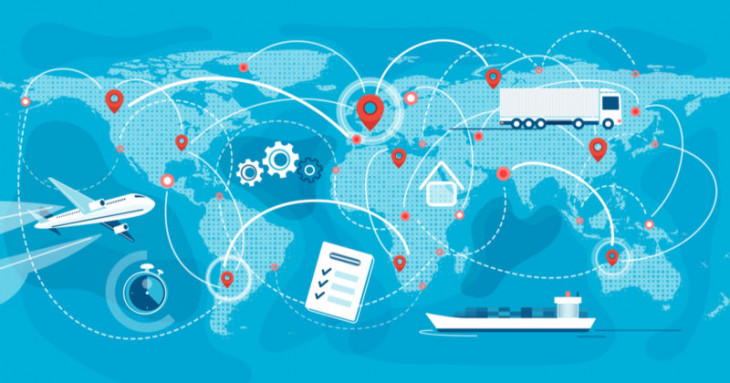Time for Africa to be a serious player in global value chains
By Phyllis.Wakiaga, September 5, 2022The moment for Africa to become a serious player in global value chains is now or never. With solid political momentum behind the Africa Continental Free Trade Area (AfCFTA), we have a window of opportunity to improve regional value chains and further upgrade into Global Value Chains (GVCs).
Launched in January 2021, the AfCFTA was positioned as the trade agreement to transform the economic trajectory of Africa and position the continent as a force within the Globe. The Free Trade Area brings together 55 countries with a population of over 1.3 billion, a combined gross domestic product valued at $34 trillion and is estimated to bring over 30 million people out of poverty. Since its launch, the AfCFTA Secretariat has made progress, the most recent being the launch of the Rules of Origin manual and e-tariff book in July 2022.
Africa barely trades with itself currently. According to an UNCTAD report, Africa interregional trade currently stands at 15 percent compared to 47 percent in America, 61 percent in Asia, and 67 percent in Europe. Africa and Asia are the only continents with rising interregional trade since 2008, providing us with an opportunity to turn the tide. The AfCFTA can accelerate this growth by developing regional value chains as a foundation for Africa’s participation in Global Value Chains.
Africa’s integration into manufacturing value chains is also dominated by export of primary products with only 1.9 percent of global manufacturing taking place in the continent. The Economic Complexity Index (ECI), an indicator of a nation’s productive capabilities that also indirectly looks at the mix of sophisticated products a country exports, indicates that the continent still produces primary products with relatively low sophistication.
According to the ECI 2021, countries like Japan, Germany, Singapore, the USA, and China rank 1,3,5, 12 and 17, respectively. These are countries producing sophisticated products and enjoying rapid economic growth. Most African countries are at the bottom section of the ECI, with South Africa at 70, Kenya at 90, Senegal at 96, Ethiopia at 97, Cote d’Ivoire at 124, Ghana at 117, and Nigeria at 129. According to economists, countries can only increase their score in economic complexity by becoming competitive and increasing the number technology-intensive and high value-add industries.
The World Bank Report ‘Rethinking Policy Priorities in the Context of Global Value Chains” highlights an opportunity to rethink Africa’s policy priorities, leverage the AfCFTA and other trade agreements to expand access to external markets. We need to develop and implement export-oriented industrial policies at National level that are pro-AfCFTA with regional value chains in mind that can bolster scale and complementarities for processing high-value exports. The policies will require AfCFTA rules of origin that are simple, flexible, transparent, business-friendly, and predictable to improve access to regional inputs. Integration will also be driven by reduced trade barriers, reliability and efficiency of logistics and coordinated trade facilitation services. Africa further needs to target entry of value-added products into high-growth markets like Asia, Europe, and America, further integrating the continent into global supply chains.
The second priority would be to address competitiveness and productivity. A great move will be development of policies that address market failures and distortions to facilitate entry, survival, and growth of firms, reduce business costs, ease licensing and addressing business environment challenges. Another priority is to invest in cross-cutting enablers like digital, energy, transportation, and logistics infrastructures with financing and public-private partnerships. A reliable online payment system is also needed to enable cross-border e-commerce and deal with the complicated and time-consuming payments compounded by foreign exchange restrictions and controls.
Trade agreements are not self-executing. They require the right political economy and participation of the private sector to succeed. As Kwame Nkrumah said ‘The solution to African problems will only be found in African Unity. Divided we are weak; United Africa could become one of the greatest forces for good in the world.’
— The writer is the Industrialisation Practice Senior Private Sector Development Advisor at the Tony Blair Institute for Global Change.
